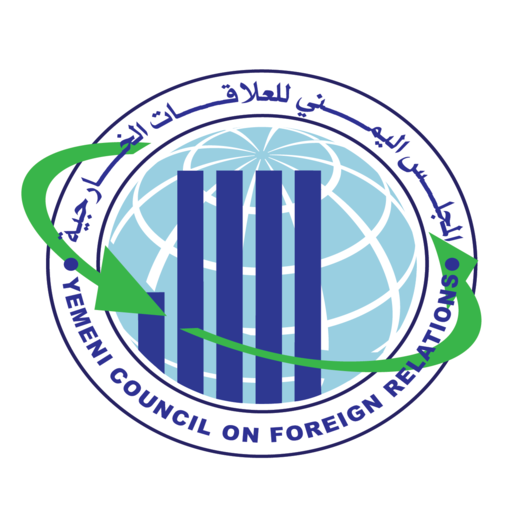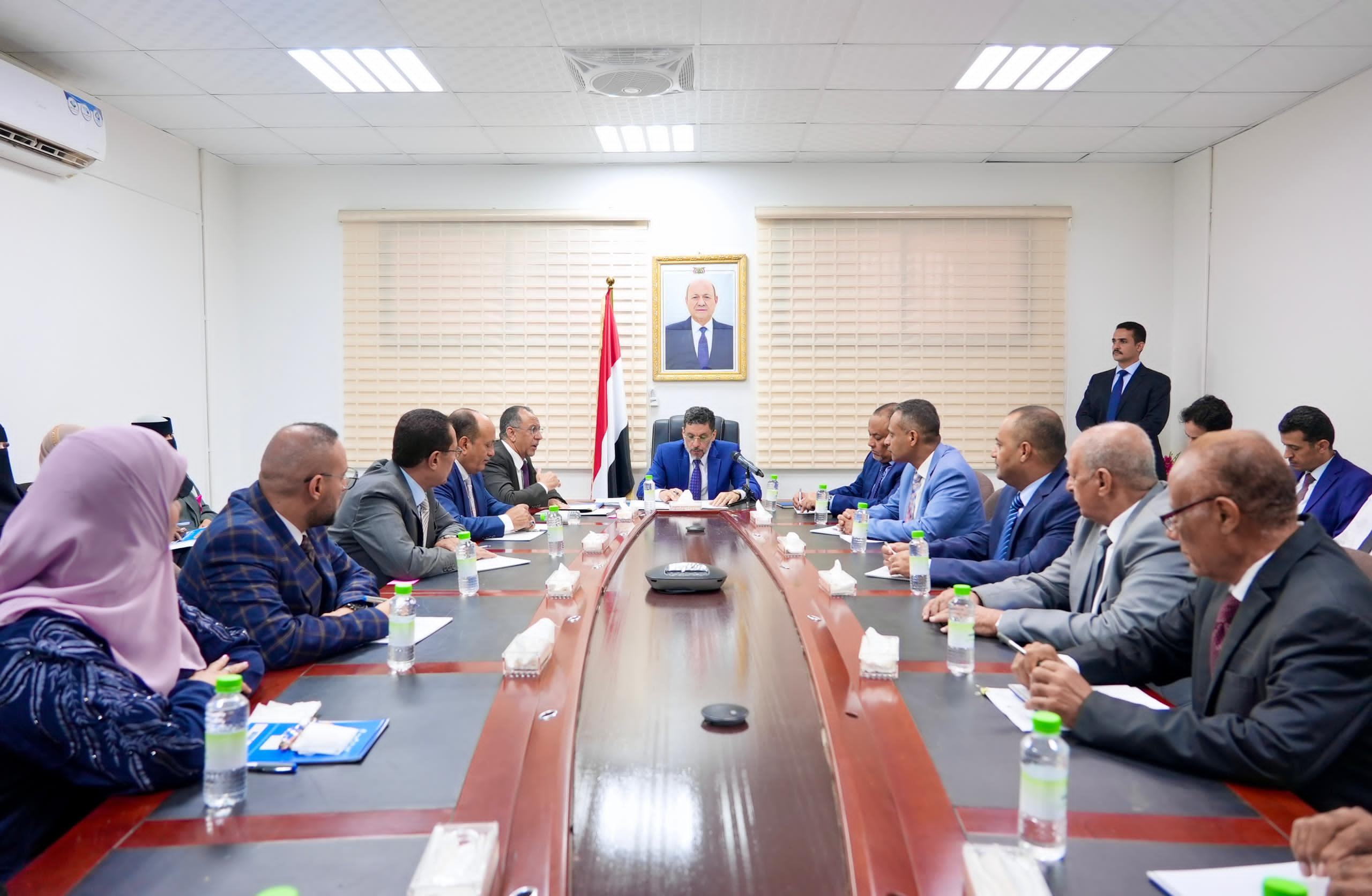Source: Prime Minister’s Office
Prime Minister Dr. Ahmed Awad bin Mubarak emphasized the comprehensive responsibility of the state and government in addressing key issues related to the lives and livelihoods of citizens, alleviating their suffering according to available resources, and implementing stringent measures to combat corruption and accelerate reforms to maintain economic stability and control the exchange rate of the national currency.
During his chairmanship of an expanded meeting with the leadership and cadre of the Ministry of Industry and Trade on Thursday in the temporary capital Aden, the Prime Minister directed all officials to closely engage with the citizens’ suffering, exert maximum efforts to address it, and work differently to alleviate the ongoing hardship. He underscored the pivotal role of the Ministry of Industry and Trade in enhancing resilience factors by providing a strategic stock of food and medicine and activating its supervisory role in controlling prices. He noted that the ministry is one of the government’s main pillars, dealing with a fundamental issue that touches both citizens and the private sector.
Dr. Ahmed Awad bin Mubarak reviewed various developments in economic and financial aspects, the reforms implemented by the government with determination and support from the Presidential Leadership Council, and the results achieved so far which have contributed to stopping the bleeding and reducing the projected deficit, despite real pressures on the economy with the decline in resources due to the Houthi militia’s targeting of crude oil export facilities since October 2021. He pointed to the ongoing escalation at the regional level and the expected impacts on Yemen, emphasizing the importance of preparing to deal with it.
He said, “We also face significant challenges, foremost among them the ongoing war with the Houthi terrorist militia on both military and economic fronts, and we must all be aware that this battle continues. We have responsibilities and commitments to deal with its repercussions and alleviate the citizens’ suffering.”
The Prime Minister outlined the government’s five main priorities: achieving lasting peace, restoring state institutions and ending the coup, enhancing accountability and transparency and combating corruption, proceeding with the financial and administrative reform program, in addition to developing economic resources, optimally utilizing external aid and grants, and directing them according to government needs and priorities. He explained that three of these priorities are linked to the Ministry of Industry and Trade, indicating its pivotal role in supporting government directions to maintain economic stability.
He praised the development and modernization within the Ministry of Industry and Trade through the establishment of specialized units in renewable energy, e-commerce, and entrepreneurship sectors to explore new opportunities for youth in promising sectors, and the importance of working on establishing regional and international partnerships and with the private sector. He stressed the need to turn existing challenges into opportunities for reform and correcting organizational structures to be more efficient and flexible.
Minister of Industry and Trade, Mohammed Al-Ashwal, presented the tasks and works accomplished by the ministry in the past period in organizational and administrative aspects, including the creation of units to keep up with new developments like renewable energy, entrepreneurship, and e-commerce, in addition to establishing the Industrial Commercial Institute. He noted that the ministry is in the process of completing the electronic portal and linking it to its branches by the end of this year, along with its plans to implement industrial zones in Hadhramout, Shabwa, Aden, and Marib.
Minister Al-Ashwal reassured citizens about the availability of a sufficient and stable food stock, with reliable supplies covering the entire next year, and the ongoing efforts to develop the infrastructure for storage and increase investments in this vital sector. He confirmed a strong partnership between the ministry and the private sector in all its commercial and service formations, and the commitment to fulfilling its role and responsibilities towards citizens in achieving supply and price stability and monitoring the quality of goods.
The meeting conducted an evaluation of the ministry’s activities and the duties it should undertake to protect consumers, develop small industries, and the ideas and proposals to enhance the role of the productive sector and provide more facilities for investors and traders, strengthening partnership frameworks with the private sector in various aspects.

